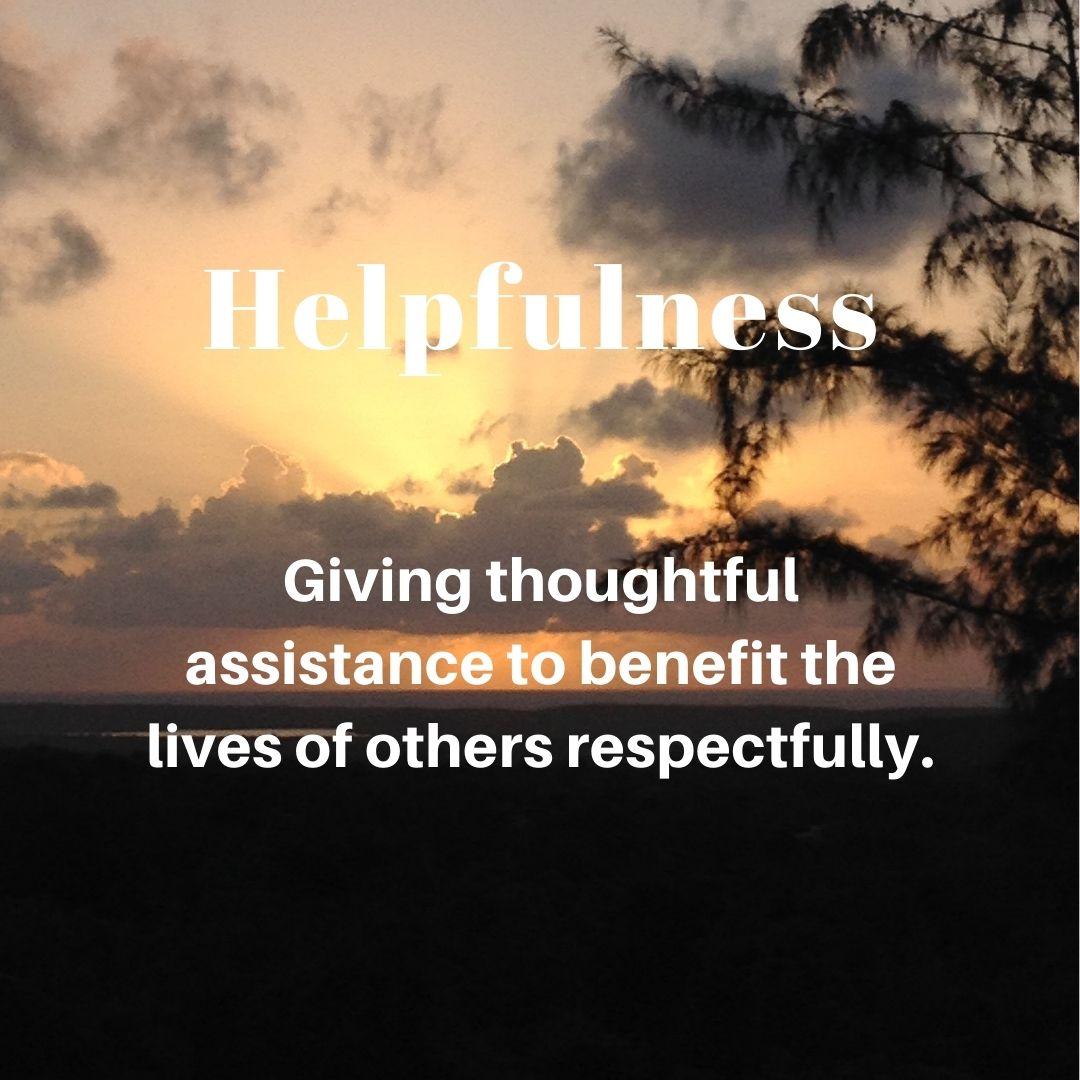
Helpfulness

Description
Helpfulness is doing useful things for others – things that make a difference to them, no matter how small. It is taking the time to be thougthful, reflecting on what people truly need and assisting them respectfully. We help others by doing things they cannot do for themselves. It is often easier to give help than to receive it. It takes courage to ask for help when we need it. There is always plenty of help when we are willing to ask. When we work selflessly to benefit the lives of others, we always bless our own.
Quote
“It is one of the most beautiful compensations of this life that no man can sincerely try to help another without helping himself.”
— Ralph Waldo Emerson
The Practice of Helpfulness
- I look for ways to make life easier for others.
- I do a service without being asked.
- I offer support in respectful ways.
- I give people what they need, not always what they want.
- I allow others to be helpful to me.
- I strive to be a blessing to others.
Definitions and practices of virtue are used with permission from the Virtues Project™.
In Family Life
In family life, the virtue of helpfulness shines as a beacon of love and support, fostering a harmonious and thriving household. Being helpful within the family unit means willingly extending a helping hand without reservation and embodying selflessness and empathy towards one another.
Whether it’s assisting with daily chores, offering a listening ear during tough times, or actively participating in each other’s endeavors, helpfulness strengthens the bonds of kinship. It builds an atmosphere of trust and compassion.
This virtue cultivates a sense of belonging and shared responsibility, fostering an environment where each family member feels valued, understood, and cared for, laying the foundation for enduring happiness and contentment within the home.
Balancing Helpfulness
Helpfulness can make a positive difference in the lives of others and, when balanced well, ensure our well-being and personal growth. Here are some virtues that can balance the virtue of helpfulness:
- Empathy: Developing empathy allows us to understand the needs and feelings of others better. This virtue helps us discern when our assistance is genuinely needed and welcomed, preventing us from overstepping boundaries.
- Respect: Respecting boundaries is crucial to maintaining healthy relationships. This virtue ensures that we don’t become overly intrusive when offering help and that we honor the autonomy and decisions of others.
- Humility: Practicing humility reminds us that we don’t have all the answers, and sometimes the best way to help is by seeking guidance or collaborating with others rather than imposing our solutions.
- Patience: Patience is key to helping others grow and learn. Rushing or pushing too hard can hinder their development, so being patient allows for a more sustainable and supportive approach.
Finding a balance between helping others and taking care of ourselves is vital. Self-care is essential to prevent burnout and exhaustion when helping others. It reminds us that we must prioritize our well-being to be effective helpers.
